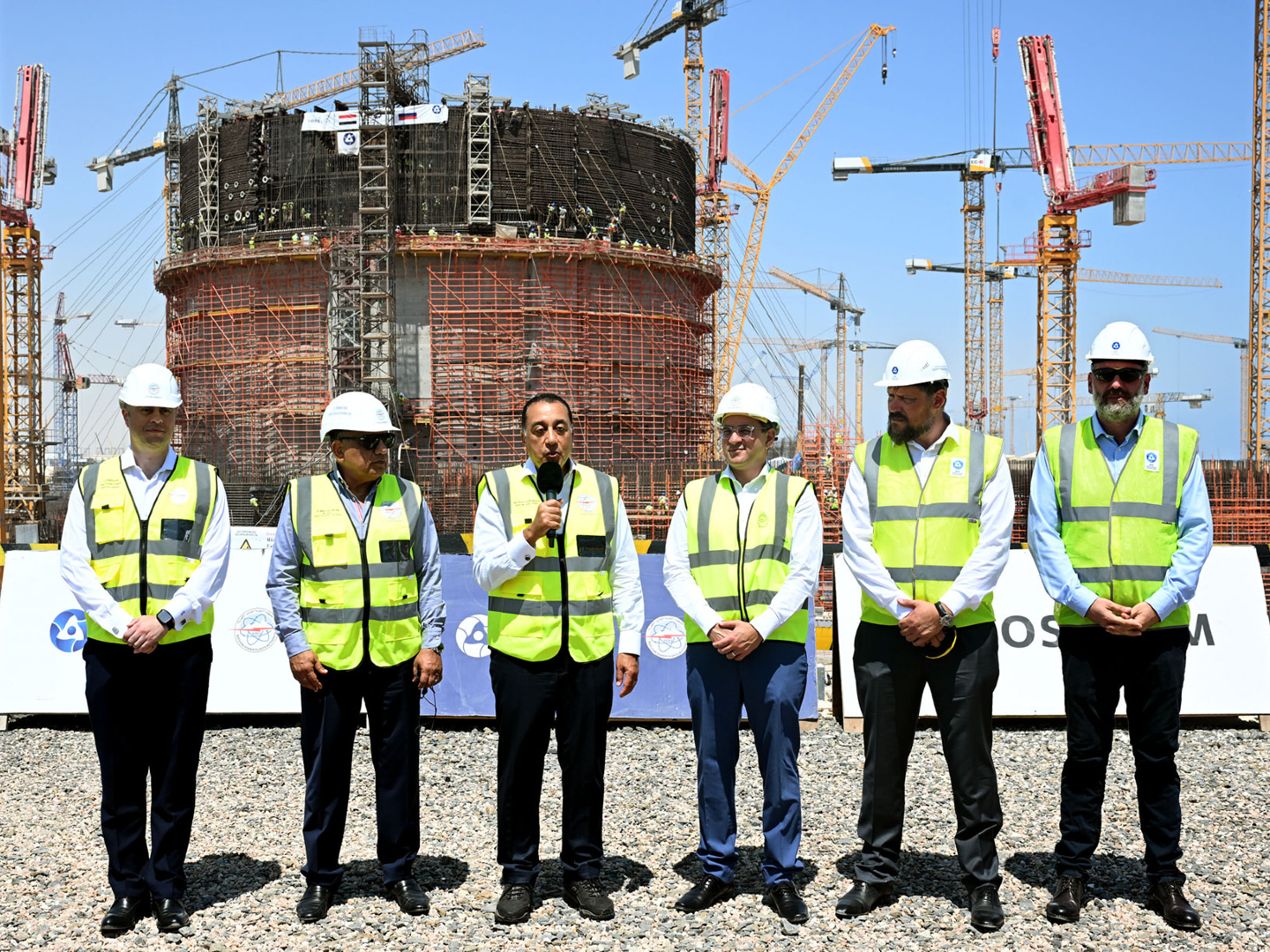Generation

Egypt: El-Dabaa nuclear plant – 10 key facts & the Chernobyl effect

Prime Minister Mostafa Madbouly also confirmed recently that the remaining three units are slated for completion in 2029.
In a cabinet statement Madbouly said that more than 80% of the project’s workforce is Egyptian, with tens of thousands working on-site.
The plant consists of four nuclear reactors with a total capacity of 4,800 megawatts (MW), each with a capacity of 1,200MW.
Construction is currently underway across all phases of the project.
The El-Dabaa project is part of Egypt’s commitment to have at least 42% of its electricity generation sourced from renewable and clean energy by 2030.
The project will be operated entirely by qualified Egyptian personnel from the very first day of operation, the government has reported.
Building a nuclear plant in Egypt was first discussed in the 1980s, but the Chernobyl disaster in 1986 was a major deterrent and the principal reason it was halted for decades.
Timeline: How Chernobyl affected El-Dabaa
Early 1980s: Egypt identified El-Dabaa (on the Mediterranean coast) as the ideal site for its first nuclear power plant. Preliminary studies and infrastructure planning began.
1986: The Chernobyl nuclear disaster in the then Soviet Union triggered global fears about nuclear safety. In Egypt, public opposition surged, political momentum was lost and the government froze the programme indefinitely.
For nearly 30 years, Egypt’s nuclear ambitions were put on hold, partly due to:
- Safety concerns
- Shifting energy priorities
- Political instability
- A lack of domestic technical capacity
10 key facts of the El-Dabaa nuclear power plant project
1. Egypt’s first nuclear power plant: El‑Dabaa is the very first nuclear power plant in Egypt and will be the only one in the region using Generation III+ reactor technology
2. Reactor specification and total capacity: The plant consists of four Russian-supplied VVER‑1200 pressurised water reactors, each with a gross capacity of 1,200 MW – for a combined output of 4.8GW
3. Timeline and construction stages
- An intergovernmental agreement (IGA) between Egypt and Russia to build the plant was initialled in 2015. This IGA laid the foundation for the 2017 contracts
- Egypt and Russia signed the main contracts in December 2017
- Unit 1 began construction: first concrete pour in July 2022; Unit 2 started in November 2022; Unit 3 in May 2023; Unit 4 in January 2024
- Commercial operations expected from around 2028 to 2030
4. Financing structure: Total project cost: $28 to 30 billion, of which 85% (~$25 bn) is financed by Russia via a low‑interest state export loan repayable over 22 years at ~3% interest
5. Project ownership and delivery partners: Owned and managed by Egypt’s Nuclear Power Plants Authority (NPPA), in partnership with Russia’s Rosatom, as well as South Korea’s KHNP, Doosan Enerbility and others for ancillary works
Technological advancement and socio-economic growth
6. Strategic energy security and emissions benefits: Once operational, El-Dabaa could meet up to 50% of Egypt’s power generation capacity, significantly reducing reliance on fossil fuels and avoiding millions of tonnes of CO₂ emissions annually
7. Advanced safety and lifespan: The VVER‑1200 design includes a core-catcher, multiple safety barriers and meets post‑Fukushima IAEA requirements. The reactors are rated for 60 years, with potential extension to 80–100 years
8. Spent fuel storage in planning: A spent fuel dry storage facility for high-level nuclear waste has regulatory approval and will begin construction in 2025, with technology designed for up to 100 years of secure containment
9. Economic development and local impact: The project is generating tens of thousands of jobs during construction (estimates up to 20,000 people) and will support local industry, infrastructure, housing, schools and services in the Matrouh Governorate
10. Geopolitical and continental significance: El-Dabaa makes Egypt the second African nation after South Africa to operate a nuclear power plant
In April, Rosatom Director-General Alexey Likhachev said El-Dabaa will become the world’s largest nuclear construction project in terms of geographical scale once it is completed by 2030.












